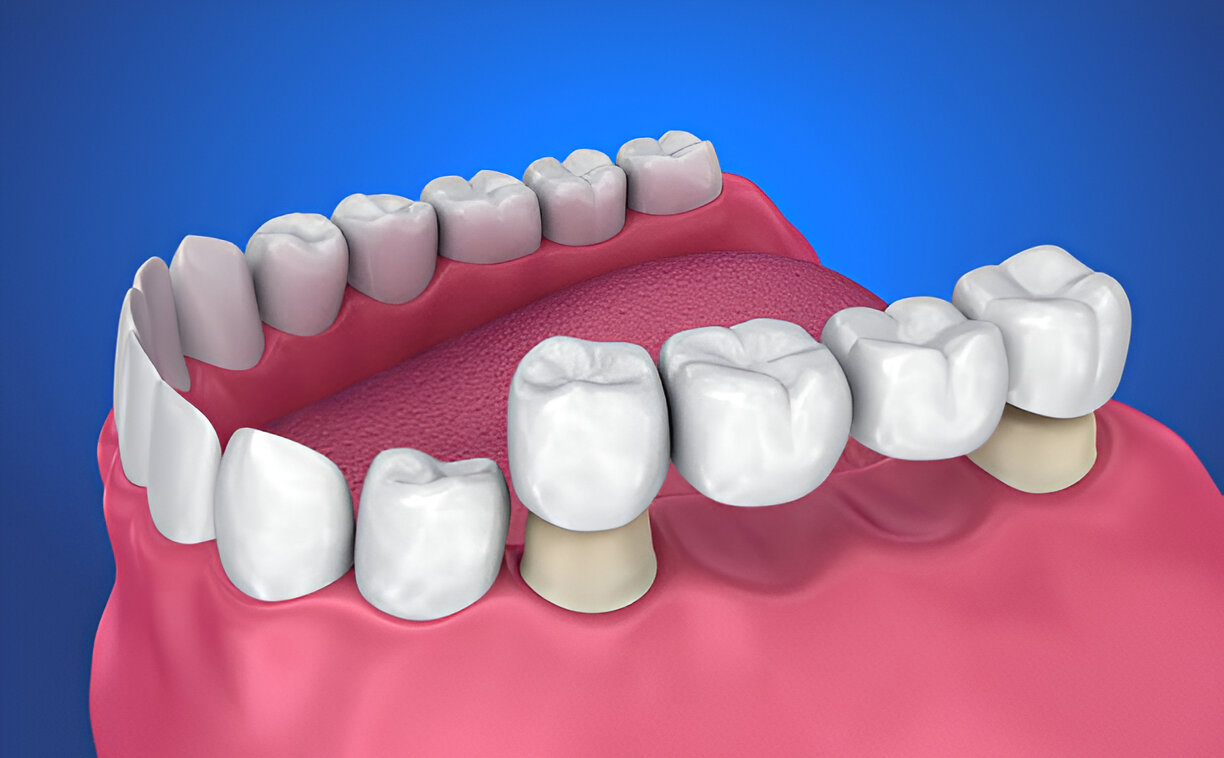Dental crowns are a common and reliable solution in restorative dentistry.
They are known for their durability. Studies show that with proper care, dental crowns can last anywhere from 10 to 15 years, and in some cases even longer. Just like your natural teeth, crowns need daily care and attention to stay in top shape.
In this article, we will cover:
- Daily hygiene habits to protect your crown
- Foods and habits to avoid
- The importance of regular dental check-ups
Let’s help you make the most of your dental investment, starting today!
Understanding Dental Crowns
Dental crowns are custom-made caps that fit over a tooth to restore its shape, strength, and appearance. People often get dental crowns in New Albany, MS, to fix broken, decayed, or worn-down teeth or to support a dental bridge. Crowns are also used after root canal treatments or to cover misshapen or discolored teeth for a more aesthetically pleasing smile.
Types of Dental Crowns:
- Porcelain and ceramic crowns are great for front teeth, as they closely match the natural tooth color.
- Metal crowns: They are made of gold or alloy, are highly durable and ideal for use on back teeth.
- Porcelain-fused-to-metal (PFM): Offers strength with a natural look.
- Zirconia crowns: Highly durable and tooth-colored.
While crowns are made to be strong and long-lasting, they aren’t indestructible. With time and wear, they can chip or loosen, so good oral hygiene and regular dental visits are key to keeping them in great shape.
Daily Oral Hygiene Tips
Maintaining your dental crown and the rest of your mouth in optimal shape begins with a simple, consistent oral care routine. Here is how to care for your smile every day:
1. Brush Gently Twice a Day
Use a soft-bristled toothbrush and fluoride toothpaste to gently clean your teeth, especially around the gum line. Brushing twice daily helps remove plaque and protect your crown and natural teeth from decay. Be gentle to avoid irritating your gums or loosening the crown’s edge.
2. Floss with Care
Flossing is essential, but do it carefully around your crown. Avoid snapping the floss up and down. Instead, slide it gently between your teeth and curve it around each side. This prevents damage to the edges of the crown and keeps your gums healthy.
3. Clean Between Teeth
If you find traditional floss tricky, try interdental brushes or a water flosser. These tools are excellent for removing food particles and plaque from tight or hard-to-reach areas, particularly around dental work.
A few extra minutes each day can go a long way in protecting your crown and keeping your entire mouth fresh and healthy.
Avoiding Harmful Habits
Taking care of your dental crown means avoiding a few everyday habits that may seem harmless but can cause severe damage.
Biting Hard Objects
Chewing on ice, pen caps, or your fingernails may seem like no big deal, but these habits can put a lot of pressure on your crown and cause cracks or even loosen it.
Sticky or Chewy Foods
Foods like caramel, gummy candy, or chewing gum can stick to the crown and slowly pull it away from the tooth underneath. It’s best to limit or avoid them altogether to prevent any mishaps.
Teeth Grinding
If you grind your teeth while sleeping, it can wear down or damage the crown over time. Talk to your dentist about using a night guard to protect your crown while you sleep.
Being mindful of these habits can keep your crown in great shape for years.
Protecting Your Crowns at Night
If you grind your teeth at night, a condition known as bruxism, wearing a night guard is highly recommended. A night guard is a custom-made device that acts as a cushion between your upper and lower teeth, helping to reduce the pressure and friction that can damage both natural teeth and dental crowns over time.
Without protection, grinding can lead to chips, cracks, or loosening of your dental crowns. A Dentist in New Albany, MS, can provide a properly fitted night guard that offers comfort and adequate protection while you sleep.
Think of it as a shield for your smile, keeping your dental work safe and extending the life of your crowns.
Diet and Lifestyle Considerations
Taking care of your dental crown isn’t just about brushing; it also depends on your daily habits and what you eat or drink.
Avoid Staining Foods and Drinks
Porcelain crowns are stain-resistant, but they are not wholly immune. Try to limit things like:
- Coffee and tea
- Red wine
- Berries
- Tomato-based sauces
- Tobacco use
These can leave behind stubborn stains over time, especially around the edges of your crown.
Eat a Tooth-friendly Diet
A balanced diet supports healthy gums and keeps the area around your crown strong. Include:
- Leafy greens
- Dairy products
- Lean proteins
- Crunchy fruits and veggies like apples and carrots
Stay Hydrated
Water is your best friend. It helps rinse away food particles, neutralize acids, and keep your mouth feeling fresh. Sipping water throughout the day, especially after meals or snacks, can go a long way in protecting both your crown and your natural teeth.
Regular Dental Checkups and Professional Cleanings
Visiting your dentist every six months is one of the easiest ways to protect your dental health, especially if you have crowns or New Albany bridges.
Why Checkups Matter
Routine dental visits allow your dentist to catch potential problems early, such as cavities forming around the edges of a crown or bridge. These issues are often painless at first, but can worsen quickly if left untreated.
The Role of Professional Cleanings
Even with good brushing habits, plaque and tartar can build up in hard-to-reach areas. A professional cleaning helps remove this buildup and keeps your crown or bridge area healthy.
What to Do If a Crown Feels Loose or Damaged
If your dental crown feels loose, shifts when you bite, or causes discomfort or sensitivity, it’s a sign that something’s not right. Don’t ignore it; waiting can lead to further damage or even infection.
Why You Should Act Quickly:
A loose or damaged crown can expose the underlying tooth, increasing your risk of decay or pain. Visiting your dentist as soon as possible can prevent more significant problems down the line.
What You Can Do Until Then:
- Avoid chewing on that side of your mouth.
- Avoid sticky or hard foods.
- Gently rinse the area with warm salt water to keep it clean.
Receiving prompt care helps protect your smile and ensures your crown functions properly.
Takeaway
- Brush and floss daily to maintain the health of your crown and gums.
- Avoid hard, sticky foods and grinding to prevent damage to your crown.
- See your dentist regularly for checkups and cleanings to ensure long-lasting results.
- Still confused about how to care for your crowns? Contact our experts at Rowan Family Dentistry to change that. Visit today!

